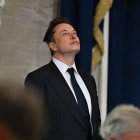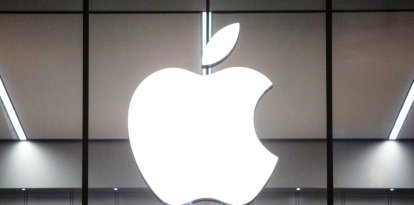Musk beats Altman to the punch: OpenAI reverses course and declines to become a for-profit company
OpenAI CEO Bret Taylor explained that the decision was made after “hearing from civic leaders and engaging in constructive dialogue.”

Sam Altman, CEO of OpenAI (File)
OpenAI, the company behind ChatGPT, has decided to abandon its plan to transition to a for-profit board-controlled structure, opting to maintain oversight of its nonprofit organization.
The announcement, made Monday via an entry on the company's blog, marks a significant shift in restructuring plans that had generated controversy and opposition from figures such as Elon Musk and Meta.

Technology
Elon Musk-led consortium submits $97.4 billion offer to buy OpenAI but Altman turns it down
Agustina Blanco

Technology
Elon Musk sues OpenAI, accusing it of 'deceit of Shakespearean proportions'
Rosana Rábago Sainz
OpenAI's president, Bret Taylor, explained that the decision was made after “hearing from civic leaders and engaging in constructive dialogue with the offices” of the Delaware attorney general and the California attorney general, who oversee OpenAI's nonprofit status.
Both prosecutors may have blocked the proposed restructuring, which sought to eliminate the return cap for investors, previously set at a maximum of 100 times their investment.
OpenAI's for-profit subsidiary, until now a limited liability company, will become a Public Benefit Corporation (PBC), similar to structures adopted by competitors such as Anthropic and xAI.
According to Steve Sharpe, spokesman for OpenAI, this new structure will allow investors and employees to own regular shares with no limit on appreciation, making it easier to raise capital in the future. The company's latest rounds of funding, which reached billions of dollars, were contingent on the removal of this limit by the end of the year.
OpenAI's nonprofit will receive an equity stake in PBC, the percentage of which has yet to be determined but will increase with the company's valuation, according to Sharpe.
The nonprofit board, known for briefly firing CEO Sam Altman in the past, will continue to govern the company and will appoint a board specifically for PBC once its incorporation is formalized.
In a letter to employees, Altman noted that the previous structure, which limited returns, “made sense when it looked like there might be one dominant AGI effort but doesn’t in a world of many great AGI companies,” and is no longer appropriate in a competitive environment with multiple companies developing AGI.
The history between Musk and Altman
Originally, the company was founded with the vision that it would be a nonprofit organization dedicated to developing Artificial Intelligence (AI), with the goal that it would be beneficial to humanity.
However, in 2019, OpenAI changed its structure to a "for-profit" company, something Musk criticized, arguing that this transformation went against the founding principles of the organization.
In 2018, Musk attempted to take control of OpenAI to accelerate development and compete with Google, but his proposal was rejected. This resulted in the tycoon's departure from the board of directors, increasing tensions between him and Altman, who remained as SEO.
Musk has sued OpenAI and Altman, alleging that the company had strayed from its original mission.
























